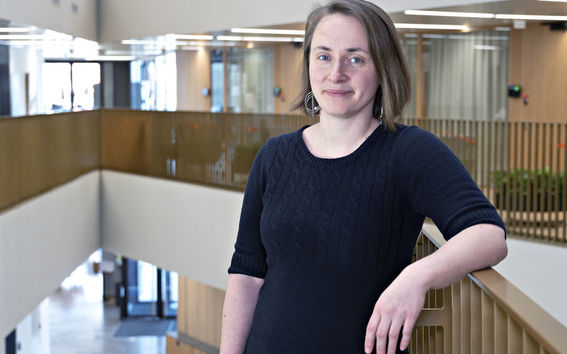Emma-Riikka Myllymäki: Why company reporting needs to be excellent

I study the quality of reporting, including its reliability and relevance. I especially focus on the financial reporting of companies.
In recent years, reporting on corporate responsibility and sustainability has also entered the picture, looking at social and environmental impacts in addition to economic metrics. In contrast to financial reporting, sustainability reporting is more voluntary in nature and has fewer standardized reporting practices.
The quality of the information in any reports is important to stakeholders both outside and inside a company. For example, to enable investors to make sound decisions from both the economic and sustainability points of view, they need relevant, comparable and reliable information.
The quality of financial reporting is related to a company's life cycle stage
My previous research has examined the correlation between a company’s financial reporting quality and aspects such as the auditor's expertise and the effectiveness of the company’s internal controls. In a recent study, my co-authors and I found that the quality of financial reporting is related to a company's life cycle stage.
Companies in the maturity stage of the life cycle have better opportunities for higher quality financial reporting than companies in other stages. The latter set of companies may, for example, have insufficient resources for internal control systems and greater incentives to manipulate metrics.
The possibilities for developing sustainability reporting are considerable
This applies to sustainability reporting too, raising several important questions: How does the internal control system support the reporting process? How should the quality of reporting be measured? What is the role of assurance by an independent expert?
The wide scope of the sustainability topic and the lack of unified standards bring a certain complexity to this, which is precisely what makes sustainability reporting so interesting and important. Interesting because, for example, the voluntary nature of reporting enables the study of various choice-related phenomena. Important, because the possibilities for developing sustainability reporting are considerable.
Regulation around reporting is increasing. At present, the largest companies are included within the scope of mandatory sustainability reporting practices. With the aim of steering capital towards more sustainable targets, the EU Action Plan on Sustainable Finance contains new regulation projects, some of which also apply to reporting. One such project is the EU Taxonomy, a classification system that defines what kind of economic activity is sustainable. The taxonomy will affect the reporting requirements of larger companies.
Reporting is an efficient mechanism for achieving goals
More research is needed on both the practices and the quality of financial and sustainability reporting. In the best of cases, reporting is an efficient mechanism for achieving goals, as it encourages companies to act more responsibly and more sustainably.
I teach a Master's course called Accounting for Sustainability at the Aalto University School of Business. One aim is to pass on the idea of how “sustainability skills” in accounting are key in the development of sustainability reporting and in managing sustainability impacts.
Emma-Riikka Myllymäki
Assistant Professor, Accounting
This Emma-Riikka Myllymäki's writing has been published also on Aalto University's new blog site at ourblogs.aalto.fi and more specifically in its My Effect blog. You are invited to discuss this posting there.
Read more news

Aalto University is introducing ORCID’s Researcher Connect service
Aalto University is introducing ORCID's Researcher Connect service, which facilitates information transfer between researchers' ORCID profiles and the university's research information management system, ACRIS.
Nature of Process: Exhibition by the students of the ‘Personal Exploration’ Course
Nature of Process is a multi-material exhibition of 14 Master´s students of Aalto ARTS
Doc+ connects research impact with career direction - join the events!
Doc+ panels have brought together wide audiences in February and continue in March with two events to discuss doctoral careers and their diversity.






